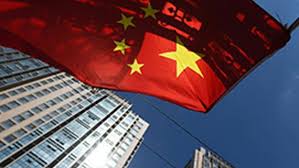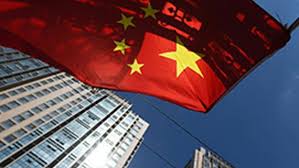
As a regulatory clampdown and restrictions on foreign exchange caused 30 acquisitions with European and US groups to fall through, the Financial Times reports that Chinese overseas deals worth almost $75bn were cancelled last year.
A waning appetite for global dealmaking by the world’s second-largest economy were highlighted by the figures, which reveal a sevenfold rise in the value of cancelled deals from about $10bn in 2015. But Chinese direct investment into the US and Europe still more than doubled to a record $94.2bn in 2016 despite more deals being abandoned, the analysis by law firm Baker McKenzie and researcher Rhodium shows.
According to people involved with several cross-border transactions involving China, becoming increasing weary of large deals with Chinese buyers are sellers of assets in Europe and the US.
“The Chinese are getting more professional but sellers are giving more priority to potential buyers outside China because of the restrictions imposed on capital,” said one person who dealt with mainland buyers, reported the news paper.
As as slowing domestic growth diverted investment elsewhere and driven by expectations that the renminbi would continue to weaken against the dollar, China notched up a record capital exodus last year.
To stem currency depreciation, with reserves falling $320bn last year, Beijing burnt through dollars making the regulators unnerved. One of the biggest hurdles for Chinese groups seeking to buy businesses overseas late last year was the foreign exchange watchdog which tried to attempt to save reserves.
Monitoring of cross-border deals involving land, hotels, film production and entertainment assets, scrutinizing of any purchases of more than $1bn outside an investor’s core business and the curbing of “irrational” acquisitions are steps that the regulators have vowed to take.
Obvious ties to the buyers’ original businesses in China were lacking in several deals attempted last year. The Anbang Insurance’s attempted $14bn takeover of Starwood Hotels & Resorts of the US was the biggest failure after it was blocked by Chinese regulators.
Collapsing in just two days were the attempted deals involving the state-backed China Resources and Fosun International, one of the country’s most acquisitive private conglomerates, last February.
The regulators scrapped ten US deals worth $58.5 billion. The US Committee on Foreign Investment thwarted the effort of a Chinese consortium’s $3bn offer for a US-based lighting unit of Philips, the Dutch group. Fairchild Semiconductor had turned down a $2.6bn bid from state-backed groups China Resources and Hua Capital due to US regulatory fears.
Including the proposed sale of German chip equipment maker Aixtron to Chinese investors for €670m, 20 deals worth $16.3bn were cancelled in Europe.
However, given that direct investment was just $2.6bn a decade ago, Chinese groups are still buying at a rapid pace,.
Political and regulatory scrutiny in China made “political risk assessment and regulatory planning” increasingly important for dealmakers and had made the near-term outlook “more challenging”, said Thomas Gilles, China specialist at Baker McKenzie.
(Source:www.cnbc.com & www.ft.com)
A waning appetite for global dealmaking by the world’s second-largest economy were highlighted by the figures, which reveal a sevenfold rise in the value of cancelled deals from about $10bn in 2015. But Chinese direct investment into the US and Europe still more than doubled to a record $94.2bn in 2016 despite more deals being abandoned, the analysis by law firm Baker McKenzie and researcher Rhodium shows.
According to people involved with several cross-border transactions involving China, becoming increasing weary of large deals with Chinese buyers are sellers of assets in Europe and the US.
“The Chinese are getting more professional but sellers are giving more priority to potential buyers outside China because of the restrictions imposed on capital,” said one person who dealt with mainland buyers, reported the news paper.
As as slowing domestic growth diverted investment elsewhere and driven by expectations that the renminbi would continue to weaken against the dollar, China notched up a record capital exodus last year.
To stem currency depreciation, with reserves falling $320bn last year, Beijing burnt through dollars making the regulators unnerved. One of the biggest hurdles for Chinese groups seeking to buy businesses overseas late last year was the foreign exchange watchdog which tried to attempt to save reserves.
Monitoring of cross-border deals involving land, hotels, film production and entertainment assets, scrutinizing of any purchases of more than $1bn outside an investor’s core business and the curbing of “irrational” acquisitions are steps that the regulators have vowed to take.
Obvious ties to the buyers’ original businesses in China were lacking in several deals attempted last year. The Anbang Insurance’s attempted $14bn takeover of Starwood Hotels & Resorts of the US was the biggest failure after it was blocked by Chinese regulators.
Collapsing in just two days were the attempted deals involving the state-backed China Resources and Fosun International, one of the country’s most acquisitive private conglomerates, last February.
The regulators scrapped ten US deals worth $58.5 billion. The US Committee on Foreign Investment thwarted the effort of a Chinese consortium’s $3bn offer for a US-based lighting unit of Philips, the Dutch group. Fairchild Semiconductor had turned down a $2.6bn bid from state-backed groups China Resources and Hua Capital due to US regulatory fears.
Including the proposed sale of German chip equipment maker Aixtron to Chinese investors for €670m, 20 deals worth $16.3bn were cancelled in Europe.
However, given that direct investment was just $2.6bn a decade ago, Chinese groups are still buying at a rapid pace,.
Political and regulatory scrutiny in China made “political risk assessment and regulatory planning” increasingly important for dealmakers and had made the near-term outlook “more challenging”, said Thomas Gilles, China specialist at Baker McKenzie.
(Source:www.cnbc.com & www.ft.com)





